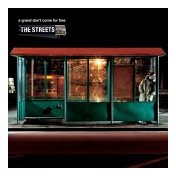As I've mentioned, misapplication of the concept of irony is a pet-peeve of mine. What can I say, I have a thing about correct word use. Not that I'm necessarily above making such mistakes myself, mind, but I try.
As it turns out, I'm also a bit of a stickler for grammar. I prefer to punctuate liberally, as you may have noticed, and I make every effort to do so correctly. I also don't like the word "stickler," but I went ahead and used it anyway, just for you.
And with that introduction out of the way, I will move on to the subject of this post: the serial comma. That's the comma that falls between the penultimate (second-to-last) item and the conjunction in a comma-separated series, according to the Wikipedia entry. For example, between "Kermit" and "and":
Miss Piggy, Kermit, and Gonzo are muppets.
Also commonly referred to as the Oxford comma or the Harvard comma, as per the house styles of the Oxford and Harvard University Presses, respectively, the serial comma is the subject of some debate among grammarians, and it seems that opinions vary widely on the propriety of its use.
In fact, legal and technical style guides advocate for the serial comma, whereas newspaper style guides such as those of the Associated Press and the New York Times advocate against it.
In legal and technical writing, clarity is of utmost importance, and the serial comma is encouraged for exactly that reason. It is particularly important in cases where one or more items in the series is more than one word in length, for example:
I think turkey, ham and cheese and roast-beef sandwiches are yummy.
As you can see, the above is questionable without the serial comma. Was that (1) turkey sandwiches, (2) ham and cheese sandwiches, and (3) roast-beef sandwiches, or was it, perhaps, (1) turkey sandwiches, (2) ham sandwiches, and (3) cheese and roast-beef sandwiches? You'll never know, but hopefully you can see how a comma before one of those "and"s would have been very helpful.
Why, then, are newspapers opposed? The primary reason, or so I've read, is that it's a superfluous character, and ever pressed-for-space newspaper articles take their space where they can get it.
While it may sound like a bad idea to (potentially) sacrifice clarity for the sake of occasionally being able to cram an extra word into an article, it could certainly be argued, and rightly so, that clarity need not be sacrificed at all. When the serial comma is omitted, the responsibility falls to the writer to ensure that the meaning is clear — fuzzy meaning is then the fault of the writer, and cannot be blamed on a missing comma.
I'm always an advocate of personal responsibility, as I mentioned in a previous post. In this case, though, I'm going to have to take the side of clarity and consistency. The serial comma is not mandatory, and it's certainly not essential in all cases, but it never hurts. Use it.
Below is a selection of other places you can find discussions on this issue. I have read many more posts and articles than these in putting this post together; those linked to below are, in my opinion, the best of the bunch.
Get It Write
The Professional Training Company
World Wide Words
Random House
Also of note, the serial comma makes an appearance, although not by name, at Number 5 on the University of North Carolina Writing Center's list of "seven easy steps to becoming a comma super hero."
